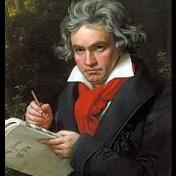Search the Community
Showing results for tags 'glockenspiel'.
-
I have started a long term project related to the planets. Now, my projects are basically divided into short term and long term. Short term projects are those for which I set a deadline(or in composing competitions, deadline is already set) of 2 months or less. And then there are the long term projects for which I don't expect to finish for at least 3 months. Full string quartet would probably take 3 months for me to compose at minimum. Full Symphony is still in the 1+ years range, though I feel like I'm getting more capable of achieving it and my compositional dream, the piano concerto, with every passing month, since I compose daily and have gotten to where orchestral writing isn't so overwhelming. Anyway, back to the planets. Unlike Holst's suite The Planets, I'm doing things different in these ways: Writing in planet order, so Mercury is first and not third as in the Holst piece I'm including Earth and Pluto in my piece This is the biggest difference, my piece is based on the physical aspects of the planets, not the mythology of the gods of the same name But there are also similarities to the Holst piece, namely that it is a suite for an orchestra and that each movement has a different instrumentation. Jupiter will be the most dense in instrumentation and I think Pluto will be the most bare in instrumentation, with Neptune, Mercury, and Mars also being relatively bare in instrumentation. I'm working on the Mercury movement right now and I plan to use 2 distant keys, 4 sharps and 4 flats along with other characteristics to differentiate the hot, daytime section from the icy, nighttime section. This 2 sections of extreme contrast being unified is related to the fact that a solar day on Mercury = 2 Mercury years. Here are some characteristics that will differ between the 2 sections of the movement: Degree of rhythmic complexity -> Hot section will have more rhythmic complexity than the Icy section Instrumental density -> Not necessaraily the actual instrumentation, but the density of it will be less in the Icy section Harmonic dissonance -> Hot section will have more harmonic dissonance And here is how the instrumental density will change in the Icy section: Strings go pizzicato Piano becomes more melodically dominant(in the Hot section, it's mainly for a rhythmic and harmonic purpose) Woodwinds more dominant Possibly forgoing the horns, or at least keeping them quiet(they blend better with and provide more fullness to the woodwinds at quiet dynamics I think) And I know the glockenspiel can give an icy tone. In fact, when I do hear an icy tone in music, it's usually one of 2 instruments at high pitch, Piano or Glockenspiel(more often Piano than Glockenspiel). And I have used this high pitch piano = icy or wintery feel on multiple occasions. But should I have the glockenspiel in the Mercury movement or save it for the Saturn movement? In the Saturn movement, this appearance of the glockenspiel will represent the glistening icy beauty that is Saturn's rings. Should I save it for just that movement though? After all, some other movements will have an icy tone in part of it, namely Mercury as already stated, Mars, possibly Jupiter(if I include the Galilean moons that is), Uranus, Neptune, and Pluto. On the other hand, with possibly the exception of Pluto, it isn't very glistening like it is with Saturn's rings, just cold. And in Mercury in particular, I'm wondering if the addition of glockenspiel will bring the extreme contrast too far for it to sound unified in any sense. And yet, I feel like having Saturn be the only movement with glockenspiel in its orchestra is somehow wrong when 6, possibly 7 out of 9 movements will have an icy tone in at least part of it(only movements guaranteed to not have this icy tone are Venus, which will sound like Hell has ensued, and Earth, in which I plan on striking that perfect balance to get across that it is the only planet with life as we know it). So, what should I do? Should I have it in Mercury? Introduce it in Mars or Jupiter? Save it for Saturn and possibly Pluto?
- 6 replies
-
- orchestral
- instrumentation
-
(and 1 more)
Tagged with:
-
Again, I was not sure whether this qualifies for the chamber music or the large ensemble category, but here it is. Powder Peony Waltz is a Viennese waltz written for whatever group of instruments I like (modified orchestral ensemble with ornaments in the form of a piano and celesta). I know that the transition between different keys is extremely awkward and chord progressions are not very fancy, but I was simply asked to write a quick small piece for dance class at my high school for their annual ballroom dance show. I intended to make this sweet, flowery, and light. Thank you for listening an enjoy!
- 3 replies
-
- viennese waltz
- waltz
-
(and 13 more)
Tagged with:
-
I would like to share with you my new composition. It was exceptionally painful and frustrating to finish, but I hope that those emotions added a bit of an artistic and melancholic spice to this silly little piece. Enjoy and thank you for listening.
- 2 replies
-
- singing bowl
- tibetan singing bowls
- (and 16 more)
-
Eviternity (Opus 24) is a piano monologue. Even though it has slight additions of cello, glockenspiel, and bass guitar as small ornaments to spice the whole work up, it is mostly a highlight on piano. I was not sure whether I can post it here, but I treat it as a piano work in the highest degree; the composition could be played as a soliloquy without any other instruments. I had some harmonic issues when writing this piece, so you may find slight dissonances. However, I left those unchanged in the end (I do not wish to stick to consonances all the time). This composition is also known as "the most cheesy work I've ever written." Thank you for listening!
-
Hi all, I'm learning a little bit more about the equipment I'm using and about "mastering" my sounds. I studied music education in school, not composition or music technology of mastering, so this is a first for me. Tips about what you hear? For example, I'm not sure what caused the clicks in the lower strings... Thanks! Gustav Johnson
- 2 replies
-
- strings
- glockenspiel
-
(and 2 more)
Tagged with:
-
Very random thing I made recently, not knowing what's going on actually... I strived for something between instrumental and ambient/free form. I used very low piano keys on purpose, just to make it clear - restricting yourself to only middle range makes everything too crowded and not very imaginative. Plus, I love low pitches, so deal with it! I'm extremely worried about the transitions between different musical ideas. A casual track for sipping warm tea in a cold, snowy day, I guess. Thank you for listening!
- 3 replies
-
- quite boring right
- b flat major
-
(and 7 more)
Tagged with:
-

Dystopian Dream (Brave New World prelude, Opus 18)
Guest posted a topic in Orchestral and Large Ensemble
A small prelude written for my English class - background music for a model based on the setting from A. Huxley's "Brave New World". In this composition, I tried to reproduce the cheap and ignorant, grotesque cheerfulness of Huxley's bizarre world of artificiality. Also, I thought that the concept of all-seeing eye would fit the dystopian nightmare. The pillar of this prelude is my loose improvisation in A major - one of the most happy and cheery keys, in my opinion. Thank you for listening!- 10 replies
-
- orchestral
- thematic
- (and 18 more)
-
A small lullaby thing I did for my Music Production (high school) class. The only objective was to produce a piece that will be exactly 2 minutes (my exceeds 120 seconds, but only because of the delay and reverb - I had to leave two empty bars for the sound to go down). I also tried to experiment with the harmony. It's a bit flexible, balancing between C major/minor and G major/minor. I just wanted to get out of the frame of choosing one key and using it's parallel or relative key. On the other hand, I do not want to write atonal music. Nymph's Sleep is written for two harps, glockenspiel, small string section (violoncellos and bassess), flute and bassoon, celesta, and synthesizers (bell synthesizers with a lot of delay). There is no score for this composition yet. Thank you for listening and let me know whether it's harmonically bearable - I did not study harmony yet.
-
My first orchestral piece finally done! Opus 12 is written for modified orchestral ensemble consisting of : Piano, Woodwinds : flute, oboe, A clarinet Brass : French horn Percussion instruments : glockenspiel, vibraphone, tubular bells, triangle Strings : violins 1, violins 2, violas, violoncellos and contrabasses. and harp. Composition consists of first part (moderato - E major/C sharp minor), second part (F major/D minor) and third part - modified first part. Since I'm a complete amateur high school student, any helpful hints and comments are very welcomed! Score in PDF format coming soon. For more music please visit : https://www.reverbnation.com/mademoisellelilaclucrezia
- 4 replies
-
- e major
- vibraphone
- (and 25 more)


